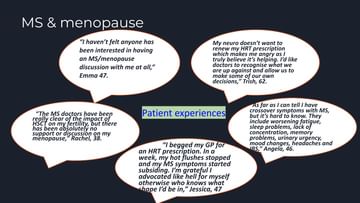Changes to diagnostic criteria in MS to improve speed and accuracy of diagnosis
Experts in multiple sclerosis (MS) have recently recommended changes to the widely used diagnostic criteria for the condition.The McDonald criteria, first published in 2010, allows diagnosis of MS after one relapse, if an MRI imaging scan shows evidence of damage to the brain through lesions developing. Lately experts have gathered to review the criteria, and in 2017 proposed changes - in the form of updates, rather than amends - which have been published in the Lancet Neurology.They suggest that diagnosis can also be made if oligoclonal bands are found in a person’s spinal fluid. These bands are groups of antibodies which cluster together, and the presence of two or more bands of different sized antibodies suggests the likelihood of a second relapse. These changes in the criteria should increase the speed and accuracy of an MS diagnosis, and will affect practice around the country.One of the Neurology Academy’s graduates looked at the effect on practice that these changes in criteria might have as part of his MS MasterClass intermodule research project. He noted that this change in the McDonald criteria meant he was using lumbar punctures to support diagnosis more and more.To find out more about the McDonald’s criteria and the changes proposed to it, visit MS Brain Health.
Related articles
Encouraging excellence, developing leaders, inspiring change
MS Academy was established five years ago and in that time has accomplished a huge amount. The six different levels of specialist MS training are dedicated to case-based learning and practical application of cutting edge research. Home to national programme Raising the Bar and the fantastic workstream content it is producing, this is an exciting Academy to belong to.


